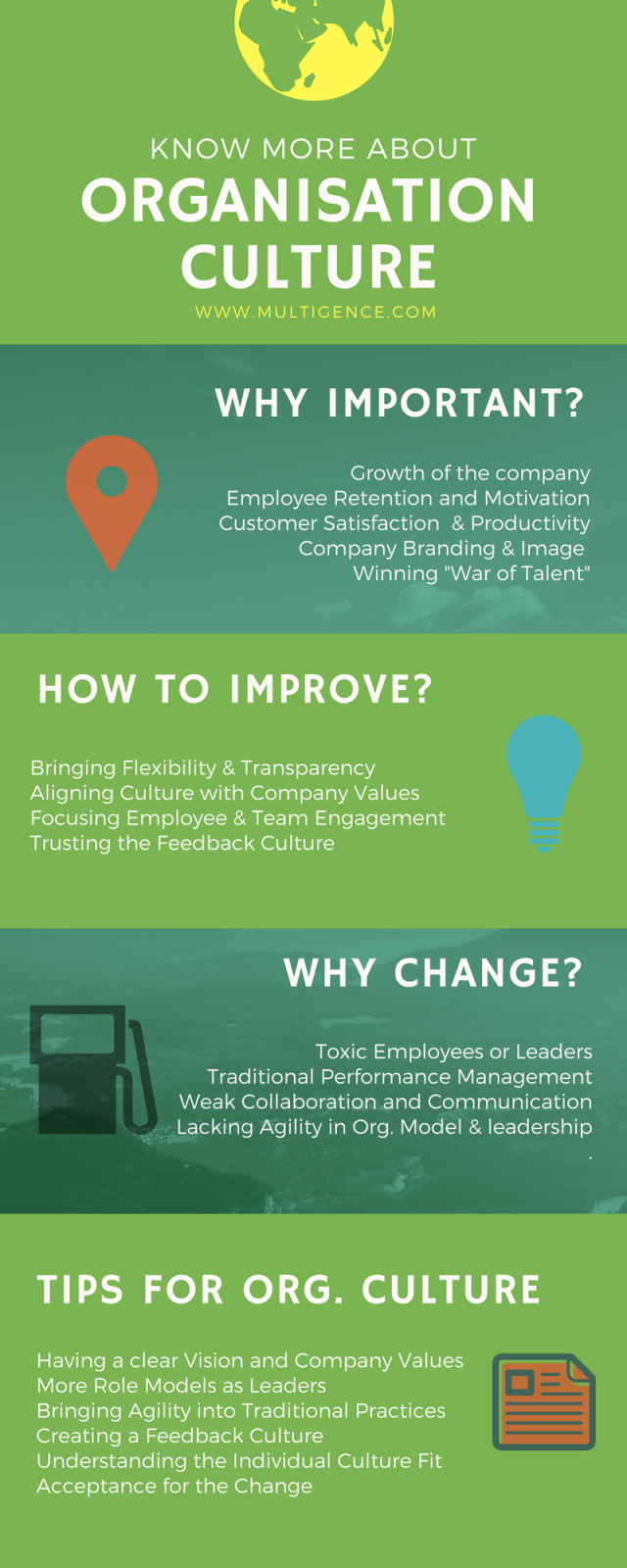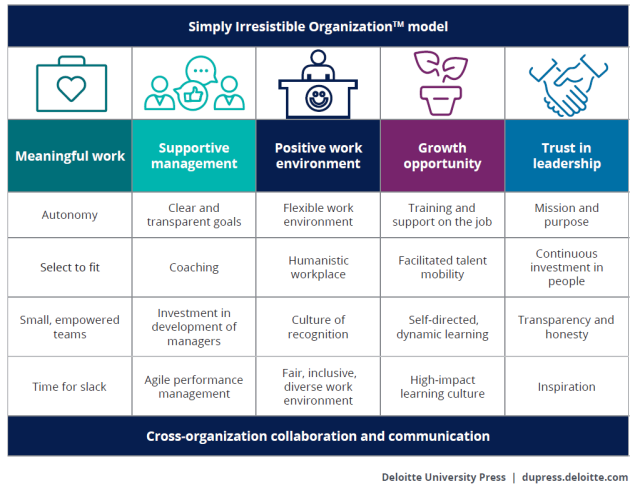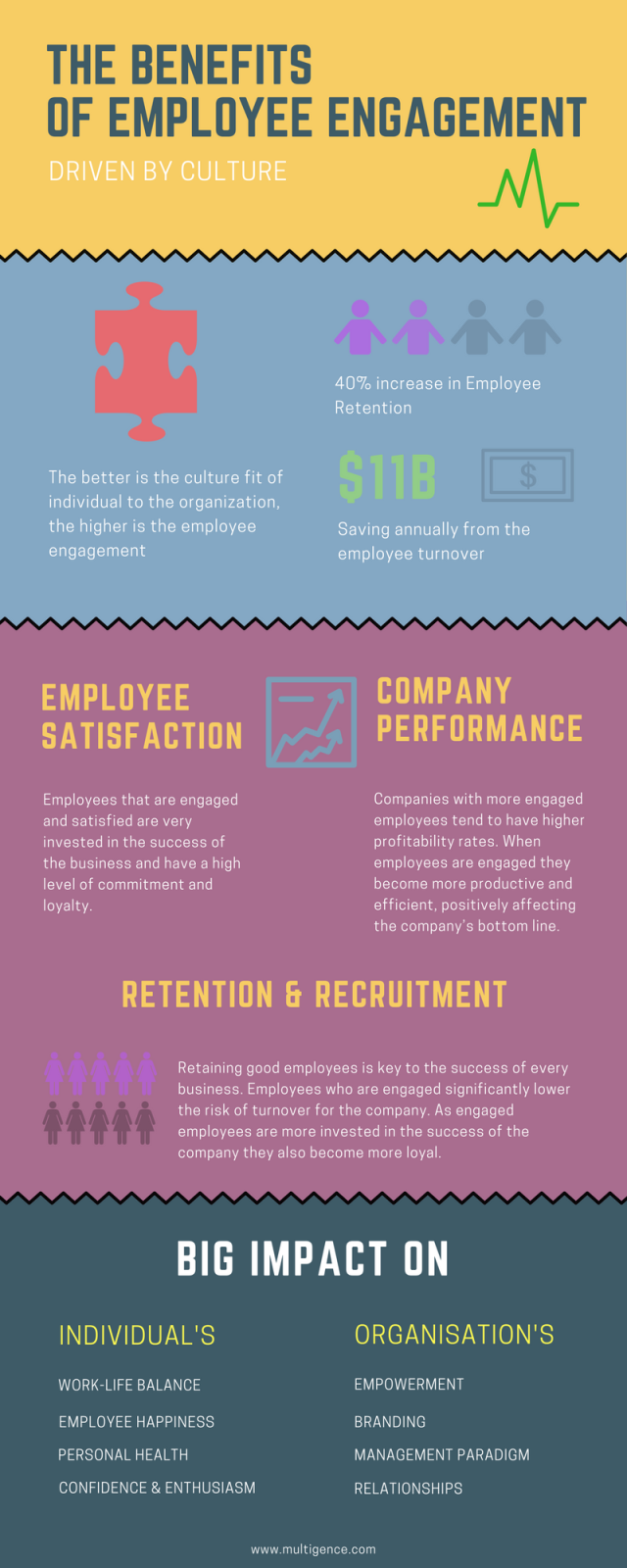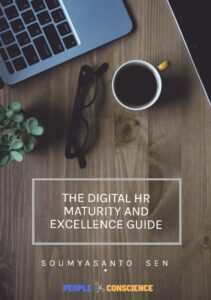This is no more a secret that engaged employees are more likely to perform better and improve organizational success. And as the companies move more towards agile organizational models, there will be more increase in the employee engagement rates.
Employee Engagement refers to an employee’s job satisfaction, loyalty, and inclination to spend discretionary effort toward organizational goals. Companies measure engagement through an annual employee survey or by a continuous feedback culture.
The important characteristic to remember when thinking about employee engagement is that, it is a real-time assessment of how employees are feeling about their organization and their work.

But this is not the only important one. We need to care about culture as well, for understanding what is happening within our organization. And engagement is a critical output of a strong culture.
For organizational culture, the definition centers on the concepts of values and assumptions which contribute to the development of norms, behaviors, and other cultural activities. Because employee engagement and organization’ culture both involve an individual’s relationship with their workplace, it is necessary to bring them always together.
But why the organizational culture is important here?
Check out the below INFOGRAPHICS on Organization Culture from Multigence. They are providing an efficient and scalable technology based solution that measures, evaluates and matches your organization culture with individual profiles of employees and candidates.

According to Multigence, organization must focus on fitting individuals into the corporate culture. Culture isn’t for your employees. It starts the moment a candidate first comes across your brand. And this immediate activate the drivers for your organization growth and success like below.
- Right hiring and promotion
- Proper alignments of skills, including the soft skills
- Taking the right talent decisions
- Fitting to the corporate branding
The culture of the organization is shaped by each single individual. Successful talent decisions will be driven by cultural fit.
And in the long term benefits, it also
- Reduce in recruitment cost and higher success rate of recruiting with right hiring match
- Increase in retention, employee satisfaction, performance indicators and productivity
- Build and choose better leaders and find the right successors
According to Bersin by Deloitte, organizational culture, engagement, and employee brand proposition remain top priorities in 2017; employee experience ranks as a major trend again in 2017. “Employee engagement has become the top issue on the minds of business leaders, directing us to an entirely new model of management”. And companies need a new approach — one that builds on the foundation of culture and engagement to focus on the employee experience holistically, considering all the contributors to worker satisfaction, engagement, wellness, and alignment.
And according to them, the below figure shows the factors that contribute to positive employee experience. So it pretty clear that today organizations must focus on the employee engagement to have the right employee experience on the foundation of culture.

Back in 2015, Graham Massay, the Business Head of The House, came up with an interesting article Culture First Engagement Second. Where he mentioned the risk is that engagement becomes a once-a-year, box-ticking exercise, designed to prove that everything’s OK rather than actually making sure that everything’s OK. By contrast, a strong values-led culture keeps your organization healthy and your employees inspired.
Focusing on culture rather than employee engagement doesn’t mean giving up on measurement. Culture is an outcome. And the business cannot afford to focus solely on engagement at the expense of culture.
So the next question comes to our mind.
Why organizations should focus on employee engagement based on culture first approach?
Multigence has tried to bring the benefits of employee engagement driven by culture or based on a foundation of culture, with the below INFOGRAPHICS.

Now if the organization is looking to apply for these benefits, they must focus on employee experience and the world of digitalization. There are many digital tools available in the market which delivers great employee experience. These tools can be categorized as:
- Productivity and Collaboration tools
- Engagement and Feedback tools
- Performance Management tools
- Well-Being tools
- Culture Fit tools
- Employee Services tools
If one can commit to managing these aspects of your employee experience along with employee engagement and culture, then they can be surely a few steps ahead of their peers. The important thing is to consistently care about the employee experience and culture. The role of technology makes a great impact here and one should plan accordingly.
In beginning of this year there is also came up an article Culture First. Digitalization Second. (In German), by the writer Daniel Fuerg, an entrepreneur and according to him.
“It is about a cultural change in our society, triggered by the possibilities of digital technologies and innovations. But the change is not digitalization. The change is what the new possibilities with us humans make. It is a cultural change, which was triggered by technological changes. Companies must thus respond to cultural change and at the same time equip themselves with technology.”
So it’s clear that before we should plan and start considering about engagement, experiences, we must also consider the individual culture and off course the organization culture.
So it’s make sense to focus on “Culture First” approach over company first or even country first.
Originally published at hrtechweekly.com on June 27, 2017.


